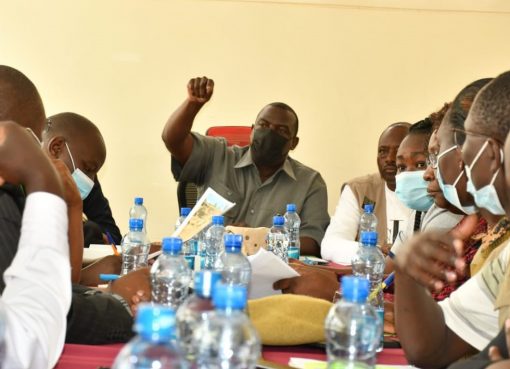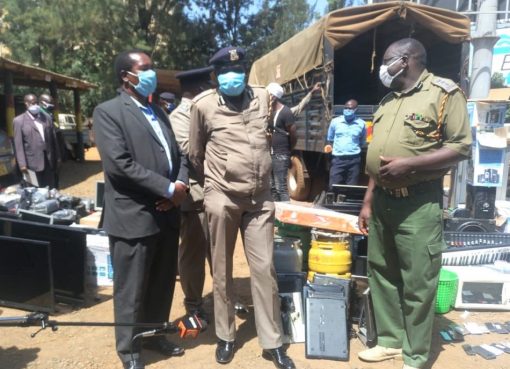Anglican Church of Kenya Katakwa Diocese Bishop John Okude has urged the county and national governments to increase patrols along the Busia and Malaba Border points to avoid impending mpox catastrophe.
Speaking at Chakol South Ward in Teso South Sub County, Bishop Okude said Kenya should not under estimate the dangers posed by Mpox which is a global pandemic.
“The two governments should marshall all machinery to come and manage the border instead, noting that the disease is more fatal than Covid-19,” said Bishop Okude.
The clergy added that, “With Democratic Republic of Congo having reported over 450 infected persons, and 55 death cases, Kenya should take precaution measure to mitigate this.”
He challenged resident of Malaba who interact with travelers from those affected countries to be more cautions.
Direct contact can happen during intimate contact. Prolonged face-to-face interactions (such as talking or breathing) and touching objects.
Mpox virus can spread to anyone through contact with objects, fabrics, and surfaces that have not been disinfected after use by someone with mpox. This includes items like clothing, bedding, towels, fetish gear, or sex toys.
From the time symptoms start until the rash has fully healed and a fresh layer of skin has formed. Some people can spread mpox to others from 1 to 4 days before they have symptoms.
Currently, no evidence suggests that people who never have symptoms can spread the virus to someone else. CDC is monitoring the latest information about how mpox spreads.
Mpox can also be spread through direct, close contact with an infected animal, fluids or waste, or getting bitten or scratched.
During activities like hunting, trapping, or processing, it infected wild animals in areas where mpox is endemic.
People are less likely to get mpox from a pet, but it’s possible. Close contact with a pet that is infected, including petting, cuddling, hugging, kissing, licking, and sharing sleeping spaces or food, can spread mpox to a person.
To reduce the risk of spreading mpox between animals and people: avoid close contact with an animal that might have mpox.
Those who have mpox should avoid contact with animals, including pets, to prevent spreading the virus to them.
By Absalom Namwalo




